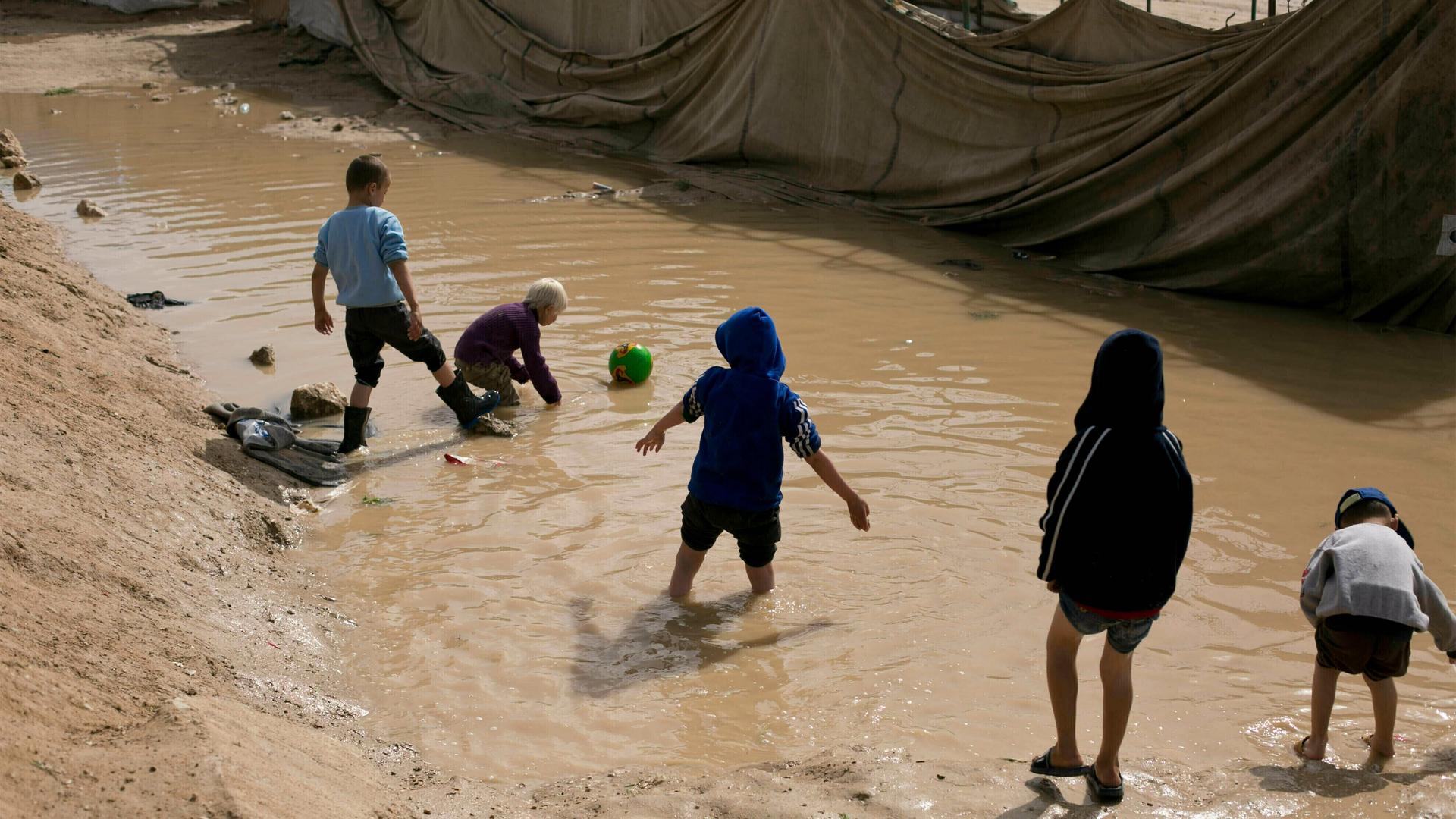Thousands of children are stranded at a camp in northern Syria. Who will repatriate them?
The UN counterterrorism chief, Vladimir Voronkov, is urging countries to repatriate the 27,000 children stranded in a massive camp in northeastern Syria, many of them sons and daughters of ISIS extremists who once controlled large swathes of Iraq and Syria.
Voronkov stressed that children “must be treated primarily as victims,” and youngsters under the age of 14 should not be detained or prosecuted.
He called the situation of the children in al-Hol “horrific” and one of “the most pressing issues in the world today.”
Al-Hol, the largest camp for refugees and displaced Syrians in the country, is currently home to almost 62,000 residents, according to UN humanitarian officials. More than 80% are women and children, many of whom fled there after ISIS militants lost their last Syrian stronghold in 2019. There are a number of other camps in the northeast as well.
Kurdish fighters are guarding al-Hol and other camps as well as thousands of ISIS fighters and boys in prisons.
In al-Hol camp alone, there are currently 27,000 children living in dire conditions. They ended up in this camp after ISIS was territorially defeated.
“Many of the children are Syrian, some are Iraqis, some are also nationals of third countries whose parents had actually either taken to Syria to join ISIS or were kidnaped and found in Syria while their parents were fighting under ISIS,” said Sara Kayyali, a Syria researcher at Human Rights Watch’s Middle East and North Africa division who is investigating human rights and international humanitarian law violations in Syria.
“They have nowhere to go and no country that’s really willing to take them,” Kayyali added.
Kayyali spoke to The World’s host Marco Werman about the humanitarian situation in al-Hol and the effort to repatriate the children to their countries of origin.
The UN’s counterterrorism chief has called the conditions in the camp horrific and one of the most pressing issues in the world today. What are their living conditions like?
There’s a lack of sanitary water and lack of sufficient shelter, significant malnutrition, particularly among the children. I’ve been to these camps several times, and every time I go, it’s overcrowded, the situation is worse than the year before. And what we’ve seen up until August of last year when children were dying because of these conditions, because of malnutrition, because of easily preventable diseases.
So, there are children from 60 countries in the camps. They are the responsibility of their member states, not of Syria or the groups that control the camps. Are any nations taking responsibility?
Some countries have repatriated their citizens. Russia and Kazakhstan are two of the major countries that have done this. But we’ve seen small, ad hoc returns by France of some children; the US, Germany and Canada just repatriated one orphaned child. This, obviously, compared to the numbers that are still trapped in the camps, is nowhere near enough and is not a systematic way to address the problem. Countries have chosen what we call very sympathetic cases to the public to repatriate when the issue really is of a wider scale than what we’ve been seeing across the globe.
What are you encountering when you urge countries to take their nationals in these camps seriously? There is a political price to pay for lawmakers who agree to take in so-called former ISIS fighters and their children.
When we speak to policymakers in different countries really across the globe, we are first met with hesitancy. No one wants to take this on. It’s too complex of a policy issue. There’s a political cost to it. But from Human Rights Watch’s perspective, there’s also a political cost to doing nothing and that political cost is going to be seen when these children and the women are reradicalized when they’re able to smuggle themselves out, come back and commit acts. And what we’ve seen so far from the repatriations that have happened is that the security risks that policymakers talk about haven’t really manifested. Most of these women, and most of the children who had been repatriated, are not in a position to form the security threat that most policymakers are concerned about.
I see only about a thousand children have been repatriated so far by a handful of countries. Do we know what these children are saying and what do you think these kids need once they are repatriated?
A lot of these children are very, you would imagine, very traumatized. Most of their lives, or at least most of what they can remember, is about being in a war zone in Syria or trapped in a camp. And so, they do need quite a bit of support in terms of psychological assistance. And that’s also why it’s very important to repatriate them as early as possible because the longer you wait, the greater the negative impact and the more difficult it is to reintegrate and rehabilitate them.
This interview was lightly edited and condensed for clarity. AP contributed to this report.
Our coverage reaches millions each week, but only a small fraction of listeners contribute to sustain our program. We still need 224 more people to donate $100 or $10/monthly to unlock our $67,000 match. Will you help us get there today?
